The best opera recordings...in the world!
Posted by: EJS on 22 October 2015
Given the wild popularity of opera on this forum (ahem...), why no separate thread?
I'll kick off with probably the most popular of all time: Puccini's La Boheme. Technically, I wouldn't call this his best (that distinction goes to the first of his Trittico: Il Tabarro) but it is one of his most accessible works, short in length and with a cute and emotional story full of sympathetic characters. And of course, someone dies at the end.
Too many recordings exist to list (I have around seven, I believe), but rather than the overestimated Beecham with Jussi Bjoerling and Victoria de los Angeles, or Karajan with Pavarotti and Freni, I'd suggest the recording that secured Antonio Pappano's long term relationship with EMI, and was the first full opera recording by Roberto Alagna, still in his 20s, in his freshest voice, and still inclined to sing mezza voce. The rest of the cast, also young, prove a fantastic ensemble and the ending, with the huge drum, is unparalleled in its intensity. Recorded sound is ideal.

Indeed, I have given up on downloads currently, they are generally so poor value compared to physicals... and I love Die Meistersinger von Nürnberg.
Simon
The Keilberth ring is essential listening for anyone interested in Wagner - that kind of singing isn't coming back any time soon (eternal pity that Hotter takes a shortcut at the end of Act III of Walküre - he actually sounds more committed for Solti). In terms of interpretation, Keilberth isn't the most interesting conductor around, so this Ring definitely is not the one Ring to rule them all - there is a place for Karajan, Levine and Haitink (the latter three plus the 'A' cast Keilberth you listed here are my favorite recordings - never got along with Böhm or Solti for different reasons).
EJ
I'm intrigued, is there a cut? I think he sings it all on the version I have.
As far as I know the only cut ever made at Bayreuth was at Wieland Wagner's 1965 Ring when he cut the short scene for Gutrune in Act 3 of Gotterdammerung. A big mistake in most people’s view I think.
The Keilberth ring is essential listening for anyone interested in Wagner - that kind of singing isn't coming back any time soon (eternal pity that Hotter takes a shortcut at the end of Act III of Walküre - he actually sounds more committed for Solti). In terms of interpretation, Keilberth isn't the most interesting conductor around, so this Ring definitely is not the one Ring to rule them all - there is a place for Karajan, Levine and Haitink (the latter three plus the 'A' cast Keilberth you listed here are my favorite recordings - never got along with Böhm or Solti for different reasons).
EJ
I'm intrigued, is there a cut? I think he sings it all on the version I have.
As far as I know the only cut ever made at Bayreuth was at Wieland Wagner's 1965 Ring when he cut the short scene for Gutrune in Act 3 of Gotterdammerung. A big mistake in most people’s view I think.
Not a cut - a breath shortcut; by the time of his 'Wer meines Speeres' - apart from questionable tuning - he introduces an unwritten rest before 'fürchtet' and then again before 'nie' to get through in one piece.
Ten years later for Solti, in weaker voice, he showed how much more powerful this phrase is when sung more tightly. The benefit of studio recording for sure, but even so, a blemish on an otherwise good recording of Walkure.
EJ
Ah yes, I take your point, definite signs of fatigue at the end of a long night.
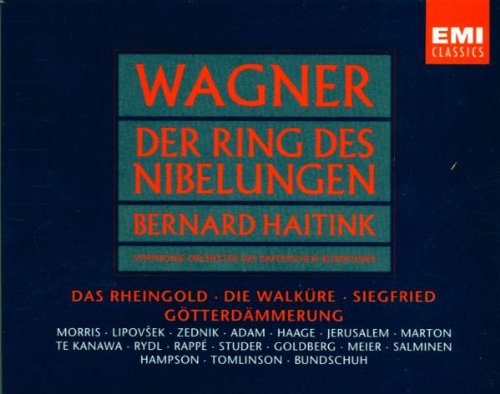
So - to the posts above, I'd like to add the Haitink Ring. Recorded at the same time as DG's Ring with Levine, James Morris appeared as Wotan in both cycles. And with good reason: apart from Hotter, whom he resembles in timbre, I don't think there exists a finer performance on records, and he outdoes his predecessor with long breathed legato (at the expense of textual emphasis perhaps). Comparing the Rings, Haitink is generally swifter, more urgent and lyrical and on balance has the better cast (apart from a wobbly Brünnhilde). What Haitink does not have, however, is Levine's breadth, or the best Brünnhilde of the time, Hildegard Behrens.
EJ
I bought the Haitink Gotterdammerung CD soon after it came out; I remember it cost a lot of money, over £80 (you can get the whole Haitink Ring on the net for £21.37 now). Unfortunately I was somewhat disappointed & did not buy the rest of the Ring. Even though it had an excellent cast, it just did not have the excitement I was used to from Solti.
This was not because I was conditioned solely to the Solti interpretation, by this time I had seen many Ring Cycles, conducted by Colin Davies at the ROH and Reginald Goodall & others at the ENO, Goodall in particular being a marked contrast to Solti.
I think it is down to the orchestra in the Haitink version, for me it just sounds too polite. As an example, compare Haitink in the orchestra music just before Hagan’s Watch in act one with Solti’s version or my favourite of the more recent recordings Barenboim, the menace is just not there in the Haitink.

Thinking of Goodall, I got out my old vinyl recording I have of his Tristan und Isolde with the WNO.
This was the first Tristan I saw back in 1979, first in Cardiff & then two weeks later in Birmingham, Linda Esther Gray a magnificent Isolde, John Mitchinson a good Tristan & Gwynne Howell excellent as King Mark. I have seen Goodall do the Ring & Parsifal but I think he was at his best in Tristan.
This studio recording stands on its won merits & not just as a reminder of two of the best nights I have had at the opera.
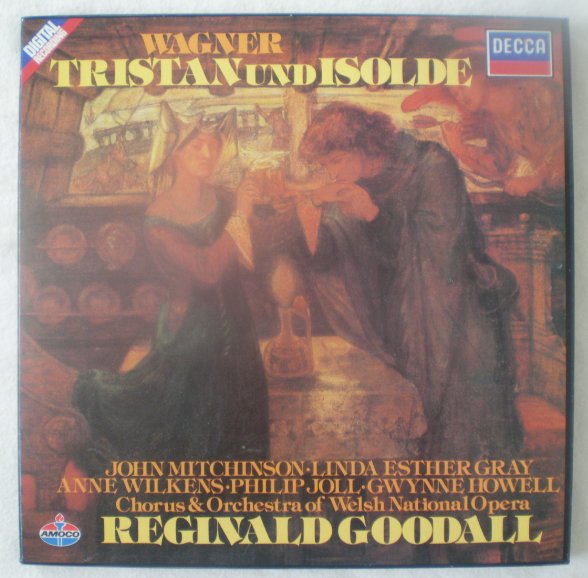
Indeed, I have given up on downloads currently, they are generally so poor value compared to physicals... and I love Die Meistersinger von Nürnberg.
Simon
Yep...just not a lot of consumers for it. Think of how few hi-fi people there are, then filter by opera-lover and you get a small number.
Surprisingly I've found an incredible amount of Opera vinyl box sets, for just a few bucks...pristine vinyl. Probably never played.
Might have noticed I didn't list any Wagner...nope I'm a Bel Canto fan...Wagner makes me want to set myself on fire after long periods of listening.
Opera can be hard to find even at normal quality sometimes and is usually a bit more expensive than normal music and MUCH more expensive than classical.
What is 'normal music'?
Indeed, I have given up on downloads currently, they are generally so poor value compared to physicals... and I love Die Meistersinger von Nürnberg.
Simon
Yep...just not a lot of consumers for it. Think of how few hi-fi people there are, then filter by opera-lover and you get a small number.
Surprisingly I've found an incredible amount of Opera vinyl box sets, for just a few bucks...pristine vinyl. Probably never played.
Might have noticed I didn't list any Wagner...nope I'm a Bel Canto fan...Wagner makes me want to set myself on fire after long periods of listening.
New recordings are likely to be issued as high resolution downloads - but given the scarcity of singers that can do justice to the works and the unlikelihood of a profit for the publisher, new recordings are few and far between. Opera Rara sells all of its recent catalogue as high res files - highly recommended if you're into rare operas, mostly Donizetti but other composers as well (next year they'll issue a new studio recording of Leoncavallo's Zaza). Warner / EMI just issued a magnificent Aida, also available in hires. Otherwise, all publishers occasionally issue recordings which are taped from live performances.
In the 90s, Universal briefly had an SACDs programme, and issued several recordings in high-res. These have become rare. HDTracks has a few of them as downloads (incl. Kleiber's Traviata), but only for the US region.
And then the tribute editions: both Pavarotti and Callas now have most of their recordings available in high-res. Remastering quality seems good but slightly rough around the edges (e.g. no attempt to clean up edits that are now more audible than before).
EJ
It’s good to see Wagner still provokes strong reactions, both for & against. Given your propensity for self immolation, it is probably best not to listen too closely to the final scene of Gotterdammerung!
Der Rosenkavalier is another favourite; I have three versions, Karajan with Elisabeth Schwarzkopf (Betty Blackhead), Haitink with Kiri Te Kanawa & Solti with Regine Crespin as the Marschallin.
All good in their different ways, but if I had to choose, it would probably be the Solti version.
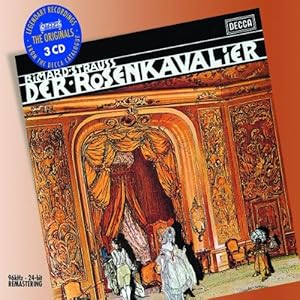
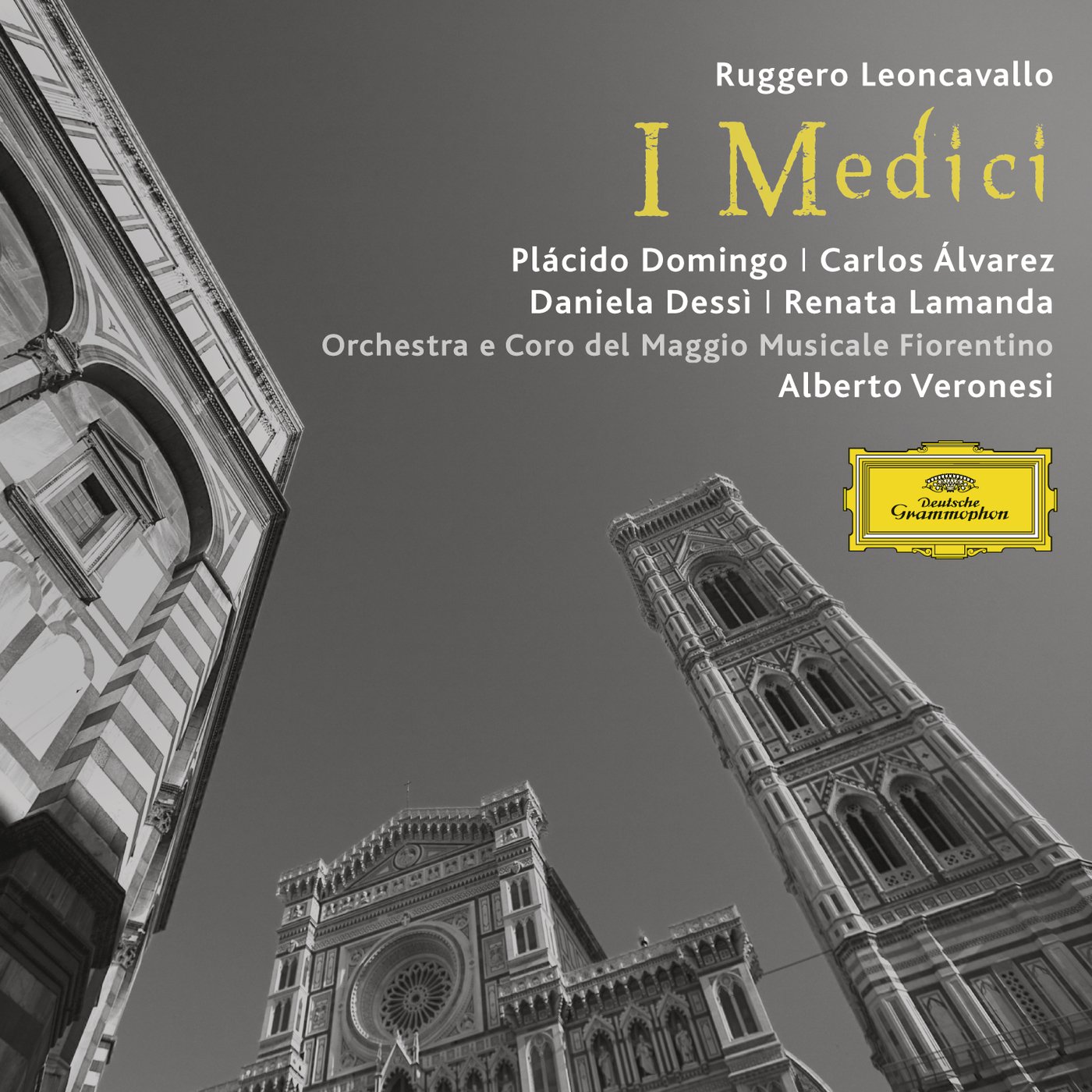
OK - this is not one of the best operas ever written - not even a good one - and the performance isn't without flaws, either. Leoncavallo had high ambitions with this work, which was to be the first of a trilogy that never happened. It's not hard to imagine why - the story doesn't lift off, and musically the inspiration is very uneven. Still, Leoncavallo had his unique language, and this opera allows us to hear it at its grandest scale. Domingo, at 66, sounds drier than in his prime but still remarkably even and committed. The rest of the cast ranges from excellent (Alvarez) to OK (a screechy Dessi).
If you like Fedora, Pagliacci, Gioconda, and the likes, recommended. But don't start your first foray into Verismo here!
EJ
It’s good to see Wagner still provokes strong reactions, both for & against. Given your propensity for self immolation, it is probably best not to listen too closely to the final scene of Gotterdammerung!
Der Rosenkavalier is another favourite; I have three versions, Karajan with Elisabeth Schwarzkopf (Betty Blackhead), Haitink with Kiri Te Kanawa & Solti with Regine Crespin as the Marschallin.
All good in their different ways, but if I had to choose, it would probably be the Solti version.

I've seen one Strauss opera live, but don't have any recordings; it was Arabella...trouser roles are cool and this one is interesting. Great opera...and of course Strauss has other great music.
OK - this is not one of the best operas ever written - not even a good one - and the performance isn't without flaws, either.
Alas, opera is *not* best story, the best music...nor musical performance or singing or acting. It's not the best costume or makeup or scenery that can be created...but put it all together and its THE BEST stuff on earth.
How many of you real opera fans have had to argue with people, who ONLY like symphony about the quality of the music and performance? Had a long argument with a friend who loved symphony, and his position was Verdi was considered a joke in the world of symphony. I told him it didn't matter, Verdi pumped out great opera after great opera.
Last year I took my wife to see Tosca, and I bought really good seats...up high. At the end, when Tosca throws herself "high" off the parapet, I could just barely see her, laying behind the stage hiding...trying be as flat as possible so no one could see her. I could also see the guards, looking "down" at her deceased body. It was only about 2 feet, I knew that everyone else could not see her...and as imperfect as that was, I relish it.
Never before had I seen behind the illusion, but I was with her back there hiding and grinning. It always evident watching opera what a miracle it is they even pull it off.
I agree that it is the combination of music, drama & hopefully a thought provoking production which make opera a bit special.
However I also think that the music in very best operas, which for me, fairly conventionally I suppose, are the Da Ponte Mozart operas plus Magic Flute , Wagner from Die Walkure onwards the latter Verdi & the Strauss of Salome, Elektra & Rosenkavalier does stand comparison with symphonic music.
Some really positive sentiments here! ![]()
Verdi's early middle period - roughly between Ernani and Rigoletto - is characterised by operas that share a certain sameness. Plots and music varies, of course, but the music is somewhat interchangeable between the operas and of varying inspiration. This is true of Attila, which on balance has a less than average plot and better than average music, and which in 1989 received a fantastic recording, under Muti and with Sam Ramey as the title anti-hero and costarring Cheryl Studer as love interest Odabella. Everyone else in the cast is fully committed, and this is one of the star recordings of the series that EMI did with the La Scala forces in the 80s and early 90s.
And while the above may be dismissive of the quality, let me add that I agree with Julian Budden that Verdi did not write a single bad opera in his life; and that his worst was about as good as the best that Donizetti wrote.
Cheers
EJ
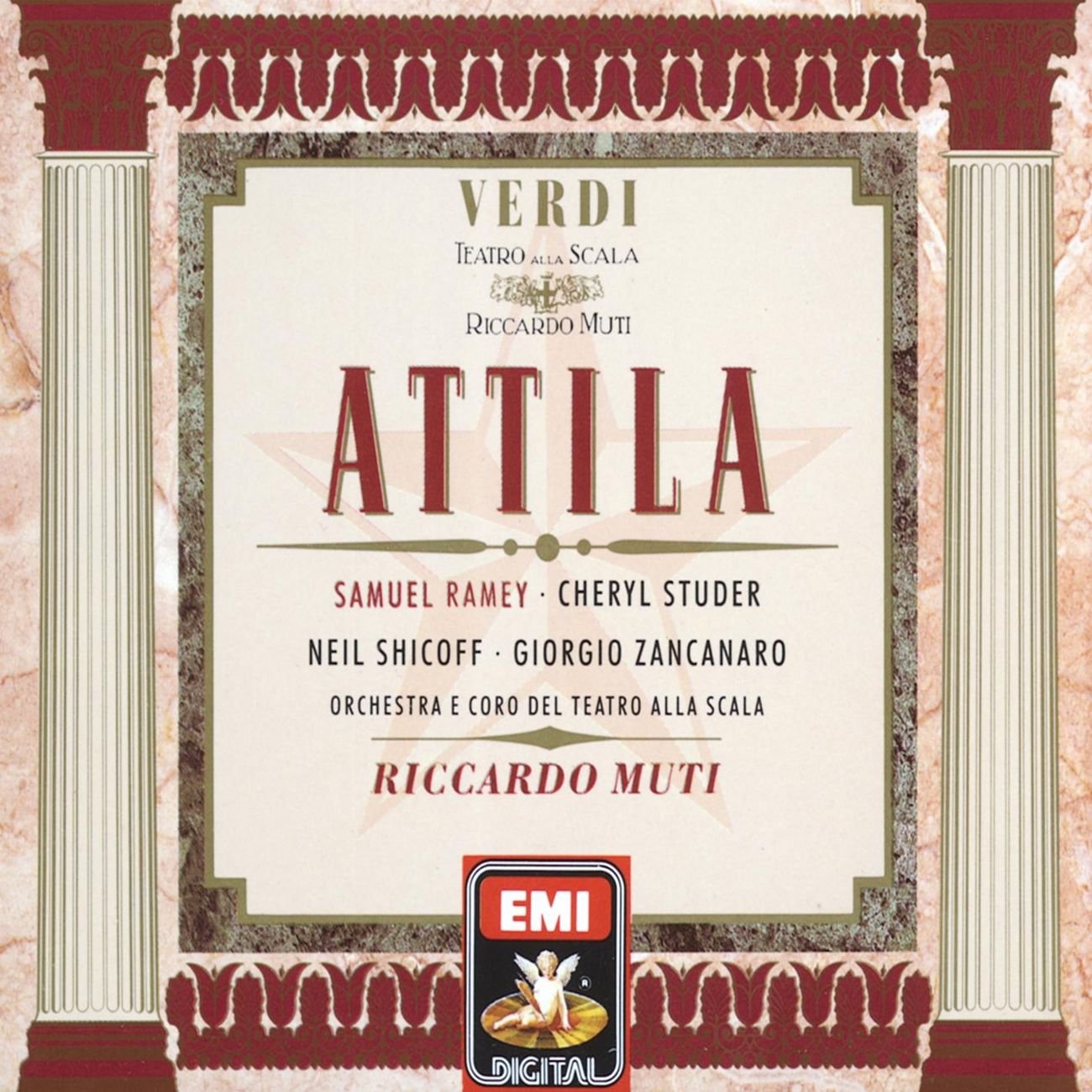
I have Verdi to thank for getting me interested in Opera. While doing my college homework, many years ago, I had the radio on to ease my boredom & La Traviata was on. It must have made something of an impression, because I then borrowed the LP’s from the Library & then got a ticket for perfmance by Sadler’s Wells (now ENO of course) who were on tour at Birmingham Hippodrome.
The following week they were doing the Ring, it was sold out, but I managed to get a return for the Saturday performance of Twilight of the Gods.
I have been an opera fan & regular attendee ever since.
The earliest Verdi I have seen was Ernani & I thoroughly enjoyed it, although I do not have a recording.
La Traviata remains a favourite, last seen a couple of years ago at the ENO, I certainly would not be dismissive of any Verdi opera.
I would also like to put in a put a vote in for Janacek, who produced operas of great individuality.
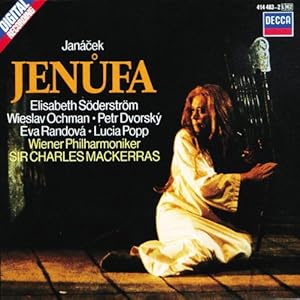
Nabucco, Verdi's third opera and first hit - essentially a series of rocket boost choruses tied together with arias, the opera is not subtle but the music is excellent. It's one of the best places to start exploring the composer. Home of the famous slave chorus, 'Va, pensiero, sull'ali dorate'.
Quite a few recordings exist, most notably the old Gardelli, with Tito Gobbi as Nabucco (Decca). Riccardo Muti's reading for EMI is thoroughly undervalued, a barnstormer of a performance with Renata Scotto on fire. But pride of place must go to Sinopoli, a variable conductor in Verdi, but who ties this work together like few others. Cappuccilli is great as the king, and the rest of the cast is at or near his level. However, it's a pity the choruses sound recessed, which limits its immediate impact (maybe to keep dynamic range in check).

Matthias Goerne as Wotan in Act III of Walküre, wonderfully supported by Eschenbach:
https://www.youtube.com/watch?v=ruQwunzMLfU
Am now very much looking forward to next year's recording of Walküre as part of Naxos' Ring cycle from Hong Kong.
EJ
I don’t think I have heard Matthias Goerne before, he sounds a fine Wotan, have you got the Naxos Rheingold in this cycle? It got good reviews, but I can’t find it on Spotify to try.
However I have been listening to a rather good Rheingold conducted by Simon Rattle, trying to decide if I need to buy yet another version. Unfortunately this appears to be a one of recording; it is not the start of a complete cycle.

I have got my fix of live Wagner pretty well sorted for next year.
Booked so far, a new production of Tristan at the ENO London, Opera North’s semi staged Ring at Nottingham (except Siegfried which annoyingly clashed with a previously booked WNO Cav & Pag) & most excitingly I am waiting to hear if I have been successful in an attempt at tickets for a new production of Parsifal at Bayreuth, I should hear by the middle of January.
There is also a possibility of going to Tannhauser at Longborough in the summer.
That should be enough for one year, unless of course, there is something interesting in next years Autumn season!
Morton, I may buy Van Zweden - once Siegfried and Götterdämmerung have been confirmed and cast. Too many Ring recording projects quit halfway through (Dohnanyi, Gergiev), and among the recent ones that did make it (on CD: Thielemann twice, Janowski) I didn't find them strong enough to withstand repeated listening. I'm going through somewhat of an autumn-cleaning phase to trim my collection, and - somewhat reluctantly - let go of quite a few Rings amongst others, so adding only makes sense if it's really outstanding.
BTW I'm envious of your opera schedule... I was given tickets for this year's Ring in Bayreuth but couldn't make it work, with two full time careers and young kids that restrict flexibility to take time off, so had to pass on the offer. I'll be lucky to catch one or two performances in Amsterdam or London next year.
EJ
BTW I'm envious of your opera schedule... I was given tickets for this year's Ring in Bayreuth but couldn't make it work,
EJ
Oh dear, that must have been very frustrating, if this ever happens again, please think of me!
This is the first time I have applied to Bayreuth since the late 70’s so I am not really expecting to be successful, but now that I have retired I will probably apply every year & so hopefully eventually get tickets.
I agree, it is certainly possible to have too many Rings, but will probably still get the new Simon Rattle Rheingold & like you the new Naxos, when it is complete & assuming it is good enough.

Verdi's Aida: for me, one of the highest summits of the genre if not the highest. Known as one of the hardest operas to sing, nevertheless, it has been recorded often and in many cases, with good result. Most collectors would point you to the old (mono) RCA recording, with Jussi Bjoerling, Zinka Milanov and Leonard Warren, under Perlea. The legendary all star cast is on great form, but suffers slightly from a conductor who supports his singers but has little to say on his own, and boxy sound.
Twenty years later, Riccardo Muti recorded a famous performance for EMI, with Placido Domingo (his second of four studio recordings), Montserrat Caballe and Piero Cappuccilli. A bit overrated: I find Muti's conducting near ideal until he comes at the closing duet, which is taken at far too fast a clip, but Domingo is somewhat one-dimensional and Caballe particularly impresses when she sings softly, but doesn't make much of an impression in her outbursts.
Then digital arrived, and DG was the first to record a new Aida, with Abbado heading the Scala forces. Domingo, on his 3rd attempt, sounds far more involved, opposite Ricciarelli as a gorgeous, but underpowered Aida without much of a chest voice. Leo Nucci is on fire as Amonasro, and altogether, this remains a solid recommendation.
Decca followed with Maazel, also from La Scala, and Luciano Pavarotti, Maria Chiara and again Leo Nucci. Chiara was at the time a famous 'Verona' Aida and she is gorgeous; the surprise is Pav, who sounds entirely natural as Amonasro. This is my personal favorite recording.
However, with apologies to Levine, Solti, Karajan , Leinsdorf and others I did not mention, I will add here the newest recording, made earlier this year with Jonas Kaufmann, Anja Harteros and Ludovic Tezier, under Pappano. This may not be the best performed or recorded Aida ever, but there is a lot to love. Kaufmann is astounding on a technical level: he takes a real diminuendo high C at the end of Celeste Aida where most would belt it out or apply a recording trick. He manages his outbursts with aplomb, and scales down beautifully for his final duet with Aida. Anja Harteros is an ideal Aida: a lyric-dramatic soprano with the chest power for her duets, but also the lyrical quality for a beautifully judged Ritorna Vincitor, full of doubt and questions. Tezier makes up with professionalism and commitment, what he lacks in vocal incisiveness. Ekaterina Semenchuk is a young sounding, beautiful Amneris. And Pappano conducts vividly, almost making Verdi sound like Puccini at times. That final duet, one of opera's Great Moments, is beautifully done.
In these barren times for studio recordings, this recording was aggressively hyped; that's a bit of a shame, because the performance - and especially Anja Harteros as Aida - is too good for that.
Cheers
EJ
That's a very fair summary, EJS, though I can't help feeling Pav was a more natural Radames than an Amonasro...
That's a very fair summary, EJS, though I can't help feeling Pav was a more natural Radames than an Amonasro...
Ah yes, that was a test. You passed!
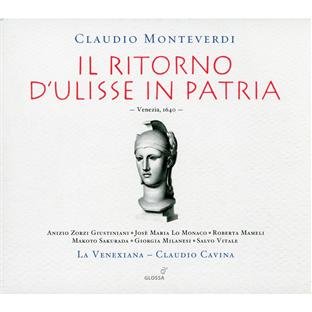
Back in time to the dawn of opera: our of the estimated 18+ operas written by Monteverdi, three survived. The middle one, il Ritorno d'Ulisse, is based on the second part of Homer's Odyssee, where Ulysses returns to Ithaka to rid the island of his wife's suitors. The work is closer to Poppea than Orfeo, but without the great tunes or hard hitting emotions of either, is rather more difficult to get into. However it has a slow burning beauty that is quite unique.
The opera's score survived in a rather unsatisfactory and sparsely documented manuscript, leading to a large number of adaptations and orchestrations. Cavina, leader of specialist group La Venexiana, did his own, and explains in a well written note why and what he did. The result is the best performance of Ulisse I've heard.
